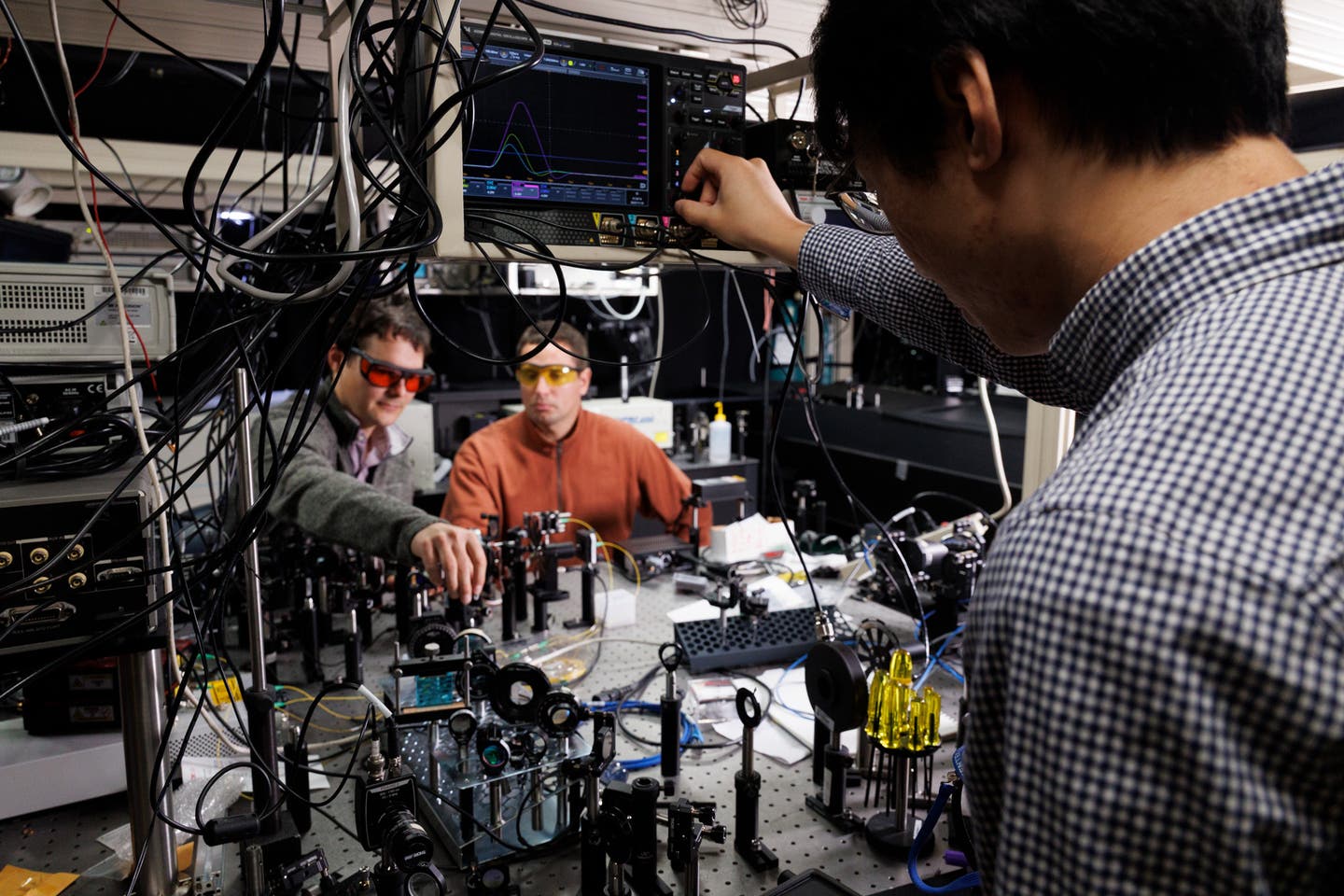Groundbreaking cancer treatment has 88% success rate, study finds
The experimental treatment has put 88 per cent of patients with multiple myeloma into remission, researchers say

[June 8, 2023: Staff Writer, The Brighter Side of News]
The experimental treatment has put 88 per cent of patients with multiple myeloma into remission. (CREDIT: Creative Commons)
In a major medical breakthrough, researchers at Israel's Hadassah-University Medical Centre have developed a pioneering treatment for myeloma patients, reporting impressive advancements in extending life expectancy for these individuals.
The novel treatment, which is still under experimental conditions, has reportedly sent a staggering 88% of patients with multiple myeloma into remission, according to the oncologists spearheading this project at the esteemed Jerusalem hospital. These findings are drawn from the clinical trials conducted on 74 patients diagnosed with this rare, and currently incurable, form of cancer.
Myeloma, a lesser-known cancer type, originates from cells in the bone marrow. The Hadassah hospital has been at the forefront of the efforts to find a viable treatment for this disease since 2018. Their primary strategy has hinged on the use of Chimeric Antigen Receptor T-Cell (CAR-T) therapy, which uses the patient's own immune cells, genetically modified to recognize and target cancer cells.
The concept of CAR-T is not new to the medical fraternity. First conceived and developed in Israel during the 1980s, CAR-T has previously shown promise in the treatment of lymphoma. However, its application in treating myeloma represents a significant milestone in oncology, and has been realized only in recent clinical trials.
Related Stories
“It was a science fiction and now it's reality,” Professor Polina Stepensky, the director of Hadassah’s bone marrow transplantation and immunotherapy department, remarked on the remarkable breakthrough.
Stepensky, who had a major role in developing this treatment, along with Cyril Cohen, head of Bar Ilan University’s cancer immunology and immunotherapy laboratory, expressed optimism about the significant impact this therapy could have on the lives of myeloma patients.
“We know that we are unable to cure myeloma, but we are able to switch it into a chronic disease,” Stepensky said. She recalled how survival rates for myeloma patients were only two years when she graduated from medical school in 1998. "Now it is more than 10, and we hope to increase it even more. Now patients with diabetes live a normal life, so I hope the same for those with myeloma.”
CAR T-cell therapy. A type of treatment in which a patient’s T cells (a type of immune cell) are changed in the laboratory so they will bind to cancer cells and kill them. (CREDIT: National Cancer Institute)
These groundbreaking trials, authorized by the Helsinki Committee and the Israeli Ministry of Health, are now advancing into their second phase. Meanwhile, the patent license has been acquired by a US-based pharmaceutical company that is preparing to launch a separate clinical trial.
Stepensky anticipates the treatment receiving approval from the US Food and Drug Administration within a year. Concurrently, separate clinical trials are being conducted in the UK, specifically at University College Hospital, using a different form of the CAR-T treatment.
Structure of chimeric antigen receptors (CARs) incorporated in the membrane of a T cell. (CREDIT: Jayapriya et al. EBioMedicine)
While the experimental therapy seems promising, it's crucial to note that it may not be suitable for everyone, especially the very elderly and those unfit for intensive procedures. Ali Rismani, a consultant haematologist at the hospital, nevertheless describes the outcomes of the trials as "promising".
“CAR-T gives us a treatment option for patients who've run out of treatments...It's not a straightforward procedure but if it does work, and depending on which CAR-T is used, [patients can live for] an extra couple of years, sometimes more,” Rismani explained.
Professor Polina Stepensky, the director of Hadassah’s bone marrow transplantation and immunotherapy department. (CREDIT: Hadassah)
The advancements made in this study have sparked widespread excitement within the medical community. Dr Rupal Mistry, a spokeswoman for Cancer Research UK, echoed the optimism, saying: “Results from this ongoing early-stage study using CAR-T cell therapy are encouraging for people with advanced multiple myeloma. While more work is needed to confirm these exciting findings on a wider scale, this research is bringing us one step closer to being able to provide more effective treatment options for people with this disease.”
In a world grappling with the impacts of cancer, the strides made by Hadassah-University Medical Centre serve as a beacon of hope. As they continue to break barriers and explore the potential of CAR-T therapy, it's undeniable that they are reshaping the landscape of cancer treatment, one cell at a time.
Note: Materials provided above by The Brighter Side of News. Content may be edited for style and length.
Like these kind of feel good stories? Get the Brighter Side of News' newsletter.



